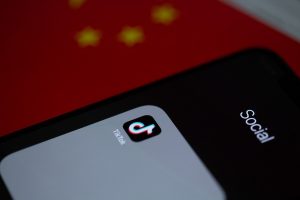For much of recent history a major puzzle was how Western companies could “win” in China. From Harvard Business Review articles on how to manage a multinational corporation in Asia, to recommended reading on “how the Chinese think,” classes and books to crack the code of this prized market have historically filled elite business schools. But today, the story is changing rapidly. Increasingly Chinese companies are wondering how they too can win in global markets beyond just cheap manufacturing, low prices, or investment money to spend. A new generation of sophisticated start-ups is finding success through technology-driven business models.
In 2012, a then little-known entrepreneur and software engineer, Zhang Yiming, with some success in launching a real estate search company called 99fang.com, had an idea: to bring relevant content to users based on an artificial intelligence engine’s recommendations. Within 2 years, ByteDance was founded and over 13 million users had subscribed to its first product, Jinri Toutiao, an AI-powered, personalized news aggregator. Jump another nine years ahead, and ByteDance has made headlines across Bloomberg, the NYT and other newspapers across the world through its apps for Chinese and global markets, turning Zhang into a multi-billionaire in the process. Its suite of products includes TikTok, the controversial short-video social media app with almost 800 million monthly active users, many of them lip syncing, dancing or otherwise entertaining (mostly) teenagers. In the United States alone, the app has 30 million monthly active users, who on average spend 46 minutes per day on the app. It has, as a result, taken its place next to Facebook and Instagram in every major business-to-consumer company’s social media strategy.
A key differentiator was Zhang’s focus on global growth and markets from the start, when peers such as Tencent or Alibaba chose to concentrate on their large domestic market first. But TikTok is not an isolated case anymore. Over recent years (and despite a slow down during the pandemic), Chinese start-ups have increasingly been eyeing Western and other global markets as part of their core strategy. In fact, a 2020 PwC survey shows that 70 percent of Chinese unicorns have global expansion plans. Unlike many of the Western companies that moved to China and emphasized their origins and brand (e.g. French or Italian luxury, German quality) and unlike the early waves of Chinese companies expanding abroad with their value-for-money products (e.g. Huawei, Xiaomi), these companies focus entirely on their technology-first, data-driven business models when expanding into new markets. Beyond TikTok, examples of this range from robotics start up Geek+, whose U.S. office opened in early 2020 and clients include Dell, DHL and Toyota, to SenseTime, the world’s most valuable AI company, to consumer apps like Ximalaya fm, a leading podcast player that owns 70 percent of the audiobook rights to bestselling titles in China and has recently made an investment in San Francisco-based Himalaya media.
An especially interesting example is the $10 billion fast-fashion disruptor Shein, which has gained growing attention from China experts over recent weeks. Its sleek website and 20 million follower-strong Instagram page (not including millions more across local country Instagram pages), featuring celebrities such as Katy Perry or Lil Nas X and event collaborations with popular artists such as Tinashe and Nick Jonas, gives no glimpse of its origins. Few know that behind the sultry pouts of influencers and its frilly $5-10 crop tops lies a company that has become China’s largest overseas fashion retailer. Appealing to the trend of hyper low-cost, high variety fashion amongst younger generations, it is the number one shopping app in the iOS app stores of multiple countries, the second most popular shopping site in the U.S., and one of the most visited fashion sites in the world. It also recently tried (but failed) to acquire the ailing Arcadia Group (including TopShop). Much like TikTok, Shein’s focus is on knowing what their consumers want and giving them exactly that. It is a technology company that just happens to sell clothes.
But moving out of China and beyond familiar territories has also meant navigating new challenges abroad – in addition to balancing a growing Chinese government at home. TikTok’s legal woes are well-known to most and Shein, even though still relatively unknown to regulators, is already banned in India as part of a restriction on 59 Chinese apps due to security concerns. Moving forward, it may also be impacted by increasingly protectionist import-export laws in the EU, which is scrapping VAT exemptions for low value imports below 22 euros.
Partially due to these challenges, but also because of its rapid growth, the historically intertwined Southeast Asian region has become a preferred destination for many of these companies’ expansion strategies. ByteDance for example, has already set up a headquarters in politically more neutral Singapore, as have its tech titan peers Alibaba and Tencent – this, some experts have commented, would also allow these companies to have a “plan B” in the case that their Chinese and global operations need to be separated. Overall, Chinese investments into the region could reach up to $500 billion by 2025 and as a result influence in the region, whether from Chinese tech start-ups or larger and older players, is likely to continue growing. Yet, with mistrust of China growing across the region, geopolitics will inevitably take its seat at the negotiating table too.
The road ahead will remain dynamic. A powerful Chinese government and cooling of Chinese relations with multiple countries will undoubtedly continue to be an important factor in shaping the strategies of all Chinese companies, not just technology-driven start ups. Yet, as TikTok’s and WeChat’s stories in the United States have shown, navigating global and local politics is possible. And as Chinese companies see these early success stories and continue to learn about expansion, the story of market entry has already changed.
































